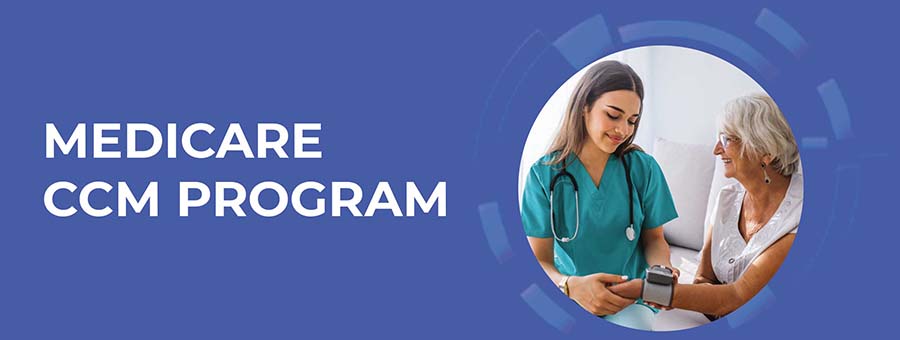Email: info@prgmd.com | Call: +1 (630) 242-6474
Business hours: 9:00 to 5:00 | Monday to Friday
Email: info@prgmd.com | Call: +1 (630) 242-6474
Business hours: 9:00 to 5:00 | Monday to Friday

Table of Contents
ToggleThe burden of managing patients with chronic conditions has always been a concern for CMS. Therefore, Medicare CCM Program came into place. The number of Medicare beneficiaries is projected to reach over 30 million by 2030, which is around 54 million as of 2018. Currently, 2/3 of the Medicare population is having multiple chronic conditions. Federal data suggests that more than 85% of healthcare spending is on managing chronic conditions such as diabetes, arthritis, hypertension, kidney, and cardiac disease. Slowing the rise in healthcare spending has been one of the major priority and there have been numerous policies implemented to put the tab on excessive spending.
After careful consideration on January 1st, 2015, CMS introduced Medicare Chronic Care Management Program that encourages physicians to bill for non-face to face in between office visit encounters for the eligible Medicare enrollees who have two or more chronic conditions that are expected to last for more than 12 months and put patients at the risk of death or functional decline.
CMS introduced this program to reimburse providers for providing care management services to patients for spending at least 20 minutes over the phone per calendar month. The Center for Medicare and Medicaid Services (CMS) weighs Chronic Care Management as a fundamental component for primary care and require the Healthcare Professionals to create a coordinated care plan among the caregiver, patient, and his/her family members to reduce the onset of any unexpected healthcare complications that can lead to a serious ailment.
Medicare has introduced CPT 99490 that reimburses eligible providers and healthcare professionals $42 on average for providing non-face-to-face care coordination. However, only one provider can bill for CCM services once per calendar month.
The primary goal is to improve access to Chronic Care Management for Medicare beneficiaries to reduce hospitalizations, improve patient experience, and help patients stay healthier. Many physicians started taking advantage of this opportunity by initiating CCM Program to generate additional revenues from their existing patient base. However, there are implementation complications that prevented many eligible providers to take advantage of this plan.
According to CMS guidelines, the physicians can initiate the Chronic Care Management Program themselves, or a healthcare professional can provide the care management services under the supervision of the eligible provider.
CMS statistics have shown that the physicians are still struggling to implement the Chronic Care Management Program, thus giving up a huge opportunity to claim CCM revenues. Physicians were finding it hard to meet the patient engagement, unending compliance modifications, patient education, and technological advancements that are all major components of coordinated care. However, physicians find it convenient to outsource CCM.
Once CCM services are outsourced, the physicians do not have to add additional office staff. This reduces the administrative burden and overall overhead cost on a practice. It also allows the office staff to focus on their day-to-day tasks. According to a rough estimation, an individual practice can earn up to $500 in annual revenue per eligible Medicare patient without investing in technological improvement.
Physicians Revenue Group, inc along with its partner, allows outsourcing CCM services to Passionate Care Management. PCM provides an all-inclusive method for tracking and billing for CPT codes and will integrate with the necessary technology in providing features essential for CCM. PCM-Passionate Care Management provides End-to-End Solutions that enable physicians to facilitate CCM required activities using their turn-key solutions from patient registration to billing.
Share: